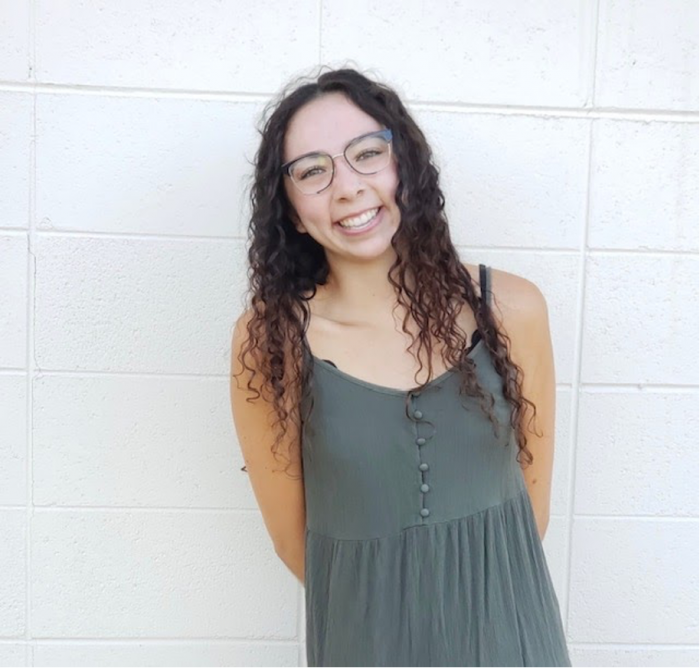Aleesha Chavez, a senior Computer Science major at Northwest Nazarene University (NNU) in Idaho, embodies her school’s motto of “Here for Good” as she brings her passion for helping others and her love of CS to research, teaching, and service.
Aleesha quickly got involved in research at NNU, a private university with only 2,000 total students and about 50 CS majors. In the summer after her freshman year, she worked with CS faculty Dr. Barry Myers and Dr. Dale Hamilton on a mapping project with the U.S. Forest Service. They applied artificial intelligence (AI) tools to drone imagery to map the locations of archaeological artifacts, and Aleesha learned how to process real-world image data. Encouraged by Drs. Myers and Hamilton, Aleesha applied and was accepted to Idaho’s IDeA Network of Biomedical Research Excellence (INBRE) summer research program for summer 2019. She spent ten weeks developing a pre-screening tool to assist pathologists in identifying prostate cancer, the second leading cause of cancer-related death for American men. Currently, pathologists review microscopic biopsy slides to screen for the cancer, but this approach misses up to 2.7% of cases. Dr. Joseph Kronz, a local pathologist, provided a dataset of digital prostate biopsies which Aleesha then labeled. She kept 10% of the biopsies unlabeled for cross-validation, a standard technique for evaluating how well a machine learning (ML) model generalizes beyond the training data. Aleesha’s ML tool of choice for the project was a convolutional neural network (CNN), well-suited to the application of image classification. Her trained CNN had perfect specificity, i.e., no false positives, but did have some false negatives, giving it an overall accuracy of 75%.
Her poster presentation on prostate cancer detection at the Idaho INBRE Statewide Research Conference won first place in faculty choice, and she placed second in Fast Pitch Science, a three-minute research talk competition. Aleesha loved the opportunity to give a technical speech, saying it helped her “learn how important explaining the problem you are trying to fix is, and what you did to try and solve it, along with being precise when summarizing [her] research.”
During her INBRE summer research experience, Aleesha enjoyed interacting with four other students as they worked on various projects in NNU’s CS lab space. “If one of us was stuck on a problem or needed some different perspective, we had other researchers there to help each other.” She now helps build a similar supportive environment in the classroom as a teaching assistant and lab administrator for the CS department.
Aleesha served as the Community Service Coordinator for the Institute of Electrical and Electronics Engineers (IEEE) club and coordinated volunteers for Idaho’s State Robotics Competition for middle and high school students. As a Latina from an immigrant family, Aleesha is excited to show the younger generation of Latinas that they too can thrive in CS.
The experience she gained in problem solving, programming, and technical writing helped Aleesha land a software developer summer internship in 2020. She is now in her senior year at NNU and hopes to work in the healthcare field after graduation, applying her technical skills to improve the lives of others. Outside of the lab, she plays piano, loves classical music, and enjoys the beauty of the Gem State through hiking, camping, and paddle boarding excursions. To other undergraduates considering CS research, she advises, “Don’t let imposter syndrome get in the way of research. Every time you don’t know or understand something is just another chance to learn and grow. If you have an opportunity that’s outside of your comfort zone, go for it!”
— Written and edited by Ian Ludden
